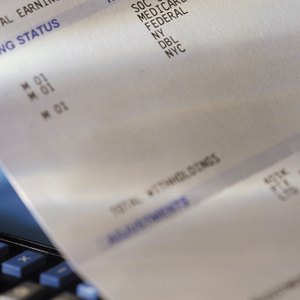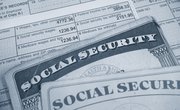
Can you turn off FICA payments? The answer depends on a few things. For most taxpayers, Social Security and Medicare withholdings under the Federal Insurance Contribution Act (FICA) cannot be avoided.
However, there are exceptions based on earnings. In addition, a special payroll tax deferral that went into effect in August of 2020 may also impact what some taxpayers owe for both 2020 and 2021.
Read More: What Income Is Exempt From FICA?
Who Doesn't Have to Pay FICA?
All salaried and self-employed workers are generally required to make FICA contributions throughout their earning years. If you're self-employed, you're essentially paying double because you don't have an employer splitting the tax with you. The good news is that you can deduct half on your tax return. Here's what the FICA numbers look like for the current tax year:
- In 2020, wages up to $137,700 (moves to $142,800 in 2021) are taxed 6.2 percent for Social Security.
- In 2020, wages with no cap are taxed at 1.45 percent for Medicare.
- For employed people, your employer will match your withholdings before sending the full payment to the government on your behalf.
- For self-employed people, you will send the full total (15.3 percent) to the government.
You may be able to ask your employer to "shut off" part of your FICA contributions before the end of each year if you earn a high income under something called the wage-base limit. Essentially, this means that you'll hit your threshold for Social Security withholdings for the year before the year ends. In 2020, the wage limit for owing Social Security is $137,700. That number will jump to $142,800 for 2021.
Read More: How Is the Medicare Tax Calculated?
Is There a FICA Exemption?
Yes, there is a rare FICA exemption that is applicable to some religious groups. If you belong to a religious group or organization that declines Social Security benefits tied to retirement, disability care or medical care on the basis of moral or religious grounds, you may be able to receive an elective FICA exemption. Employers can also receive this exemption if they qualify. The law will only honor requests for exemptions if you belong to a recognized group that has existed since at least the 1950s.
Some students may also qualify for exemptions. If you're a college or university student working for your school on a part-time basis, you may be able to opt out of paying Social Security taxes. However, you must be enrolled as a full-time student with a relationship to your employer that is primarily educational.
Read More: Tax Rules for Student Interns
Lastly, some state and local government workers are exempt from Social Security taxes. This typically includes workers in public school systems. However, this is not a given. It only applies if workers are covered solely by a pension plan. For workers covered by pension plans and Social Security, Social Security contributions must be made.
What About the Tax Deferral of 2020?
In August of 2020, President Donald Trump instituted an optional deferral of employee FICA withholdings for employees earning less than $4,000 on a bi-weekly basis in response to COVID-19 hardships. This is not FICA forgiveness. While the deferral period lasts from September 1 to December 31 of 2020, all deferred taxes are owed by April 30, 2021. As a result, employers who implemented the deferral at the end of 2020 will need to deduct extra payroll taxes during the first quarter of 2021.
The bottom line is that almost everyone who earns employment or self-employment wages owes FICA. High earners may be able to shut off Social Security payments at a certain point in the year once they've crossed the payment threshold. If you were subject to the COVID-19 tax deferral of 2020, keep in mind that you may see bigger chunks missing for FICA in the beginning of 2021.
References
- IRS: Elective FICA Exemption - Churches and Church-Controlled Organizations
- IRS: Student FICA Exception
- IRS: Guidance Issued to Implement Presidential Memorandum Deferring Certain Employee Social Security Tax Withholding
- IRS: Topic No. 751 Social Security and Medicare Withholding Rates
- Social Security Administration. "What Are FICA and SECA Taxes?" Accessed April 1, 2020.
- Social Security Administration. "2021 SOCIAL SECURITY CHANGES." Accessed Oct. 15, 2020.
- Internal Revenue Service. "Topic No. 751 Social Security and Medicare Withholding Rates." Accessed Nov. 5, 2020.
- Social Security Administration. "Supplemental Security Income Overview." Accessed April 1, 2020.
Warnings
- Consult an accountant or tax attorney before proceeding to make sure stopping deductions is a good choice for you. Terminating FICA deductions will not end other payroll deductions.
Writer Bio
Adam Luehrs is a writer during the day and a voracious reader at night. He focuses mostly on finance writing and has a passion for real estate, credit card deals, and investing.

